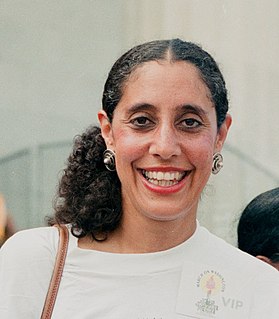A Quote by Mark Consuelos
My default answer to most of the questions my kids ask me is 'no.' I just start with 'no.' I let them fight for it a little bit.
Related Quotes
To me, the most shocking thing about grit is how little we know, how little science knows, about building it. Every day, parents and teachers ask me, 'How do I build grit in kids? What do I do to teach kids a solid work ethic? How do I keep them motivated for the long run?' The honest answer is, I don't know.
Sometimes when I visit schools, kids will interview me for the school newspaper. They ask me questions and my answers tend to go on and on, and they try to write down everything I'm saying as quickly as they can. And one day, a kid holds up her hand and said, 'Do you think you could just answer 'yes' or 'no?' Aren't kids wonderful?
Whenever I'm giving talks, I always ask people to think of the most obscure questions because I enjoy those the most. I always get the same questions: Why does Pickwick say "plock" and will there be a movie? I like the really obscure questions because there's so much in the books. There are tons and tons of references and I like when people get the little ones and ask me about them. It's good for the audience [and also] they realize there's more there.
When people ask me what philosophy is, I say philosophy is what you do when
you don't know what the right questions are yet. Once you get the questions
right, then you go answer them, and that's typically not philosophy, that's
one science or another. Anywhere in life where you find that people aren't
quite sure what the right questions to ask are, what they're doing, then,
is philosophy.
When Christians start thinking about Jesus, things start breaking down, they lose their faith. It's perfectly possible to go to church every Sunday and not ask any questions, just because you like it as a way of life. They fear that if they ask questions they'll lose their Christ, the very linchpin of their religion.
Generally I find that kids ask better questions than you get with adults. Something that kids will do a lot is, they're so nervous, and they're not really paying attention, so they'll ask the same question someone just asked. And you're trying to be nice and not embarrass them any more than they are already.
For me, I felt bad for people asking the questions, cause you know their boss sent them out saying, 'Get me something on Mission Impossible.' And you ask the question, and it's just a polite, 'I'm not going to tell you.' Then, every so often, they'd go, 'Well, can't you just tell us a little bit?' I have to say, 'You know what guys, I'm under contract and I'm not going to tell you anything.' So you keep asking the questions and I'm just going to keep smiling. And it's hard, cause I don't want to seem rude, but it's part of my job just like it's part of their job to keep a secret.




































